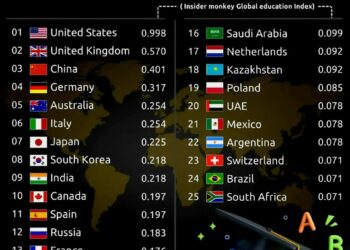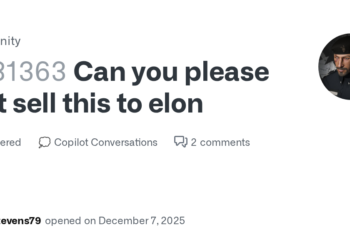Select Language:

- A new web browser to feature a chat interface, allowing AI agent integrations.
- This launch heightens OpenAI’s competition with Google in the AI domain.
- The product is part of OpenAI’s strategy to monitor user behavior online.
OpenAI is on the verge of unveiling an AI-driven web browser that aims to compete with Google Chrome, the leading browser by market share, according to sources who spoke with Reuters.
Set to debut in the coming weeks, the browser intends to leverage artificial intelligence to transform the way users navigate the internet. Its goal is to provide OpenAI with enhanced access to critical user data, a key asset for Google’s success.
If embraced by the 500 million weekly active users of ChatGPT, OpenAI’s new browser could impact a significant revenue stream for Google, as Chrome’s data-sharing capabilities play a crucial role in its advertising business, which constitutes nearly three-quarters of Alphabet’s income.
This browser will allow users to interact via a chat interface similar to ChatGPT without needing to leave the browser to visit external websites, according to two sources.
OpenAI’s initiative is part of a larger strategy aimed at integrating its AI solutions into the daily lives of users, one source noted.
OpenAI has opted not to comment on these developments.
The sources requested anonymity as they are not authorized to speak publicly on the matter.
Sam Altman, leading OpenAI, disrupted the tech landscape with the launch of ChatGPT in late 2022. Following that initial success, OpenAI is now navigating intense competition from rivals like Google and Anthropic while seeking new growth opportunities.
In May, OpenAI announced its plans to enter the hardware market, revealing a $6.5 billion acquisition of io, a startup focused on AI devices founded by Apple’s former design chief, Jony Ive.
The web browser will enable OpenAI to seamlessly incorporate its AI solutions, such as Operator, into a user’s browsing experience, essentially facilitating tasks like making reservations or filling out forms directly from the websites they use.
Facing Significant Competition
OpenAI has a challenging road ahead, as Google Chrome boasts over 3 billion users and commands more than two-thirds of the global browser market share, according to StatCounter. Apple’s Safari trails in second place with a mere 16% market share. Recently, OpenAI reported having 3 million paying business users of ChatGPT.
Perplexity, which is known for its AI search engine, recently launched Comet, an AI browser capable of performing actions on users’ behalf. Other startups, such as The Browser Company and Brave, have also introduced AI-driven browsers that can explore and summarize web content.
Chrome’s effectiveness in delivering user data has been so successful that the Department of Justice is pursuing its divestiture following a federal judge’s ruling last year which determined that Google maintains an illegal monopoly in online search.
According to sources, OpenAI’s browser will be based on Chromium, which is Google’s open-source browser technology that also underpins various competing browsers such as Microsoft Edge and Opera.
Last year, OpenAI hired two former Google vice presidents who were instrumental in the original development of Chrome. The Information was first to report these hires, as well as OpenAI’s contemplation of creating its own browser.
An OpenAI executive testified in April that the company would be interested in acquiring Chrome if antitrust regulators compelled its sale.
As of now, Google has not indicated plans to sell Chrome, stating its intention to appeal the judge’s ruling regarding its monopoly status.
OpenAI has decided to develop its own browser rather than simply create a plugin for an existing one, allowing for greater control over the data it gathers, according to one source.






